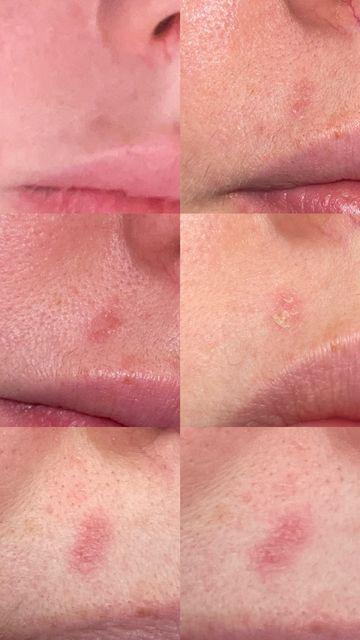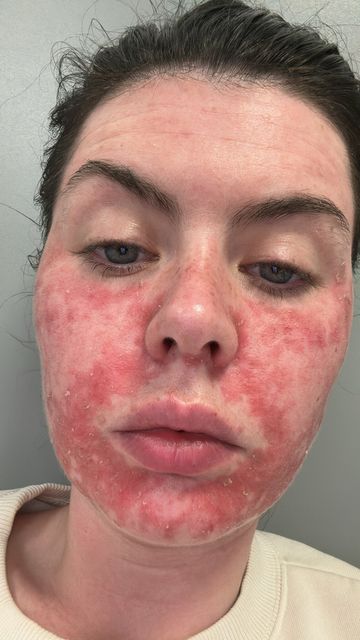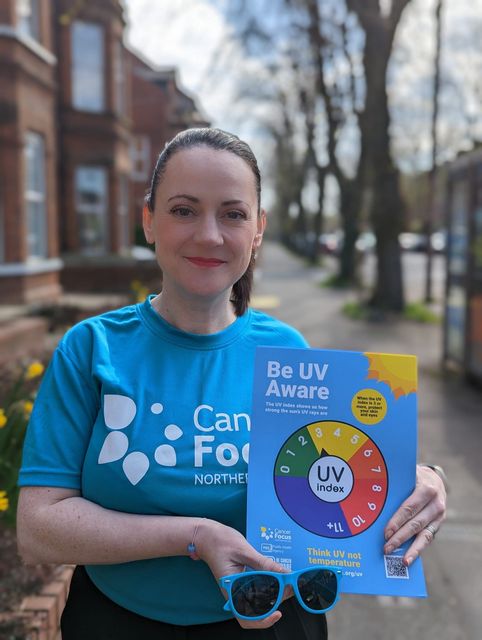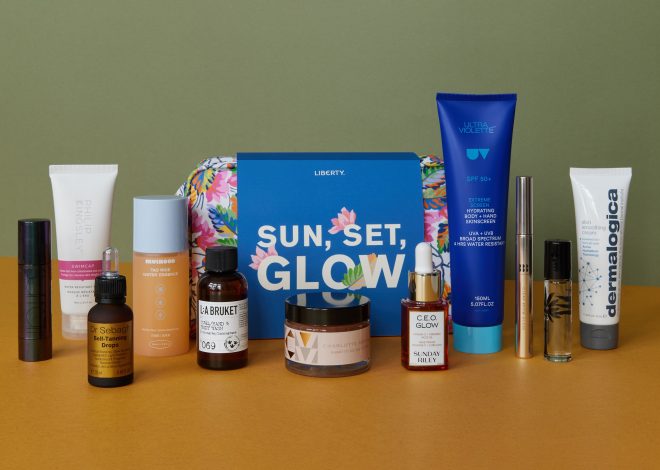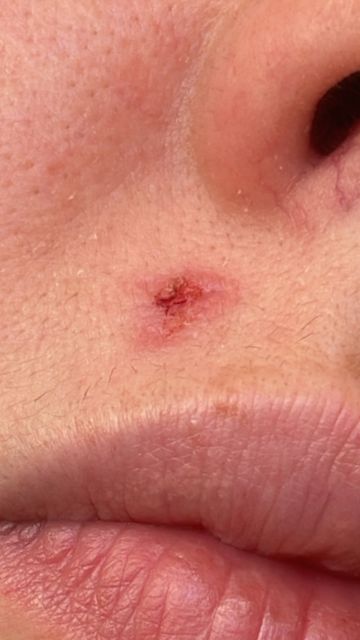
‘Society needs to stop labelling skin cancer as the ‘good’ cancer’
Social media feedback encouraged beauty entrepreneur to seek professional diagnosis
Roisin Doherty (31) noticed a persistent spot on her upper lip which she initially dismissed as “harmless.” As an entrepreneur in the beauty industry with over 65,000 Instagram followers, she sought advice online, not expecting her inbox to be flooded with warnings about potential skin cancer.
This prompted Roisin to seek a professional opinion, but her GP warned of a wait of over two years with the NHS. Deciding to take the private healthcare route, after “several stressful weeks”, she was diagnosed with basal cell carcinoma.
“I never once thought the spot would be cancerous. I posted on my social media that day as I normally would, but I passed a remark about the spot. My phone started blowing up with messages, people warned me of cancer and horror stories I didn’t want to read at the time,” she said.
“I rang my GP the next day. At the best of times, I would struggle with my mental health, so from the minute I received the first message my mind was spiralling.”
Roisin’s spot prior to diagnosis
Despite becoming aware of potential skin cancer in September 2023, Roisin didn’t receive her medical diagnosis until January 2024.
“When I was medically diagnosed, my whole body went through a tunnel, everything felt blurry, and I couldn’t take in anything I was hearing. I was thinking the worst. I’m so happy that my husband, Nick, was with me at the time to ask all the questions.
“I felt an overwhelming sense of fear, confusion, and disbelief. I immediately panicked and my thoughts were racing. I thought ‘am I going to die?’, ‘has it spread to anywhere else?’, ‘how long do I have left with my kids?’… ‘Why me?’.
“But I also felt a sense of relief that I wasn’t waiting for answers anymore.”
The former beauty salon owner has recently completed a topical chemotherapy cream treatment which treats cancer cells where it is applied. This treatment caused many negative side effects, which she describes as feeling ‘like a layer of acid on the skin’.
“Initially, I was supposed to get surgery to remove the growth. However, my treatment plan was changed to a topical chemotherapy cream called Efudex.
“When the reaction starts, it feels like there’s a layer of acid on your skin”.
“Apart from the obvious pain that this causes, I’m experiencing multiple side effects, which can vary each day. The main ones include daily nausea, fatigue, severe headaches, hair loss, trouble sleeping, flu-like symptoms, and an unpleasant taste in my mouth”.
The spot over six-week period before treatment
Due to the debilitating impact of the disease on her emotional and physical well-being, Roisin disclosed that she had to step away from her business, leaving her family of five to rely on a single regular income.
As a mother of three children under eight, she urges other parents to incorporate wearing SPF into their daily routine.
“I only used a sunbed once, when I was a teenager. I don’t sunbathe, and it still happened to me. I got this disease from not using SPF in the everyday Irish weather. I hope my experience will frighten the younger generation to stop using sunbeds and to use SPF. Our skin is the biggest organ in our body, we need to nourish it.
“It’s important that as adults and parents, that we build a routine and make a point of protecting our skin. It takes 21 days to build a habit, and if we instil that habit in our children, it will be inbuilt in their nature, the same as brushing your teeth every day.”
Roisin hopes that by sharing a raw insight into her treatment journey, it will “raise awareness about the reality of the disease”.
Treatment final day
“I’m not here to give off or judge anyone who uses sunbeds, but I now have a chance to educate to potentially save lives,” she said.
“Society needs to stop labelling skin cancer as ‘the good cancer’ — no cancer is good cancer. I want to help people understand and see a tiny glimpse of what happens behind closed doors.
“I’ve been through a lot in my lifetime, but this has been the hardest I’ve ever had to go through and it’s only the beginning.”
Roisin added: “It is now my mission to build awareness of skin cancer and to help those that need it. I would love if anyone who could possibly help me could reach out — we have the potential to start something amazing”.
Skin cancer is the most common form of cancer in the north. The latest figures from the Northern Ireland Cancer Registry show that an average of 11 people per day are diagnosed with skin cancer.
Doreen Regan, Regional Skin Cancer Prevention Coordinator at Cancer Focus NI, addressed the factors that increase the risk of developing skin cancer and the steps that can reduce this risk.
“Skin cancer can affect anyone, regardless of skin colour. However, people with very fair skin, red or fair hair, and certain skin types are more susceptible to the harmful effects of ultraviolet radiation.
“Other risk factors include having a personal or family history of skin cancer, having many moles (usually 50 to 100) or unusual moles that are large, uneven in colour, or have irregular borders, experiencing severe sunburn, especially during childhood, and having reduced immunity, such as after an organ transplant.
Doreen Regan, Cancer Focus NI with UV index
“Skin cancer is much more common in older age groups, but we are seeing the numbers increase in younger age groups over recent years”.
Doreen challenged misconceptions about the disease, noting that she has encountered many remarking that, “we don’t get enough sun in NI to be at risk of skin cancer” or that “skin cancer isn’t too serious”.
She explained: “This is untrue as UV damage is cumulative over our lifetime. Both UVA and UVB rays damage our skin whether at home or abroad. The key message is to be UV aware. If the UV index is three or above, we need to protect our skin and eyes from damage. You can check the UV index using the Met office weather app”.
“The reality is that any cancer diagnosis can be devastating for the person receiving it. In Northern Ireland, 97 people die every year because of skin cancer.
“Thankfully many skin cancers are treatable, the earlier it’s diagnosed, the easier it is to treat, and treatments have advanced dramatically in recent years.
“Many skin cancers are curable but unfortunately this is not always the case, especially with malignant melanoma, which can be fatal if it’s not diagnosed early”.
Doreen listed potential early symptoms and the preventive measures we can take to reduce the risk of getting the disease.
“To minimise our risk of skin cancer we must always enjoy the sun safely. UV levels which can damage our skin are not related to temperature.
“On cool bright days, even with light cloud, there can be damaging levels of UV radiation. Ensure that you protect your skin, cover up, stay in the shade, wear sunglasses, apply sunscreen with a minimum SPF 30 and four-to-five-star UVA rating. Lastly, never use a sunbed”.
“Check your skin regularly, ideally once a month. Get someone to check difficult-to-see areas, like your back and the backs of your legs. Don’t forget the soles of your feet, between your toes, your scalp, neck and nails. Know your skin and what is normal for you. If in doubt, get it checked out”.
“If you are concerned about a skin lesion, visit your GP who will refer you to a dermatologist if necessary.”
For further information on skin cancer visit: www.careinthesun.org or call the Cancer Focus NI Nurse Line at 0800 783 3339 for advice, information and support on any cancer issue. To keep up to date with Roisin’s cancer journey, follow @roisindohertyblog on social media
